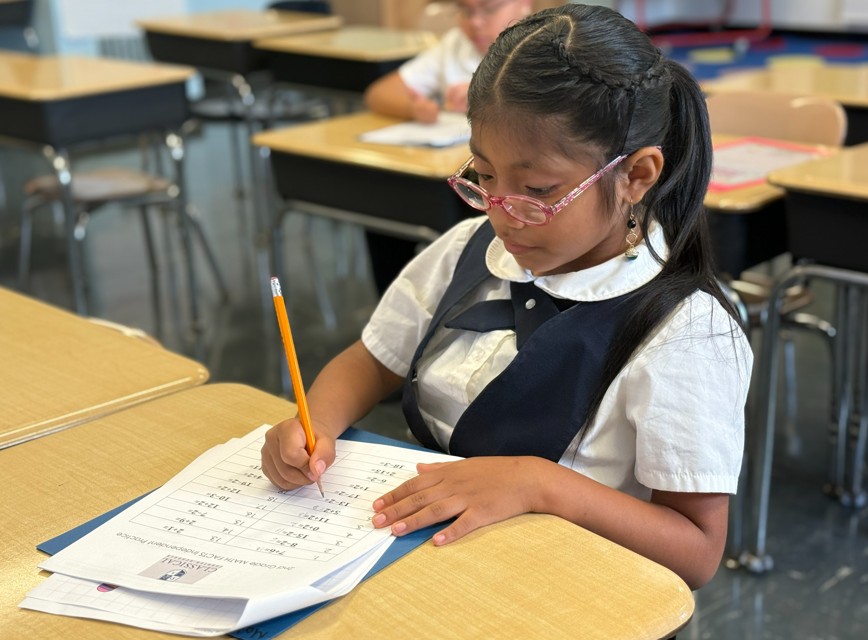Testing can be difficult for scholars and for teachers. For scholars, there is the pressure that comes with knowing that these results will be on a report card and shared with their parents. They could also feel that the results reflect their level of intelligence instead of their level of knowledge of material, which could cause insecurity or shyness in the material. As a teacher, one has to not only grade the test but also deal with the many results that can occur after testing with each of the scholars. Here, at Classical Charter Schools, we follow simple rules as adults to make sure that scholars know the importance of every test and that adults know what to do once the test is completed.
Understand The Data as a Whole
Each test is followed by a data meeting involving the teacher of the class, the Grade Team Leader, and their Instructional Coach. In this meeting, the two review the data together, looking at what went well, what didn’t, and where we can grow in instruction to meet the scholars’ needs. This involves a meticulous review of scholars’ responses to questions and the work habits that scholars demonstrated on their test booklets themselves. That way, we can eliminate issues of low effort from genuine misconceptions about material. We also examine the question types that scholars frequently struggled with so that we have a clearer understanding of questions that the class had difficulty with when completing the assessment. Additionally, we examine individual outliers so that we can better shape instruction to include them in class understandings.
Look for Class Trends
Once we have reviewed the data, we draw conclusions and share trends so that the teacher, grade team leader, coach, and school director all have the same information. These “trends,” both positive and negative, become “look fors” in observations throughout the next unit, so that we can keep an active eye on how our scholars are growing and responding to our interventions.
Respond in Instruction and Communicate to Families
After the data meetings, often teachers, Grade Team Leaders, and Coaches will then co-plan lessons with class trends in mind. In our daily Stand-Up Meetings, we will review how to address questions that were frequently missed or that align with the misconceptions that we earlier discovered in our scholars’ work. We will also share our observations of and conclusions from the assessment with our scholars and their families so that they are aware of habits to promote in the scholars’ work and where we are pushing scholars to grow daily. We also then provide frequent communication home so that families can track their scholars’ progress and growth throughout the year.
Be the Best Teacher for Your Scholars
We believe that with careful examination of scholars’ results, collaboration across our school teams, and frequent communication home with families, we can show all scholars that how they perform matters but how they grow post the assessment matters even more. The more that teachers assess scholars and address their misunderstandings and celebrate their growth, the more this growth will lead to scholar success.

